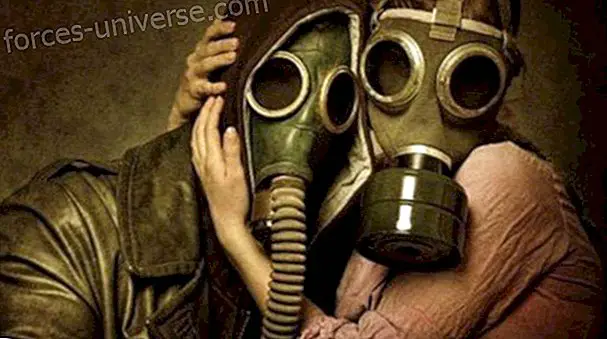Biological Sense "Movement": Bend, kneel, submit Conflict: Devaluation
 What emotional conflict live?
What emotional conflict live?
If I have any symptoms on my knees, I am experiencing an emotional conflict of devaluation related to the action of kneeling, of bowing to others, of submitting to someone or something (provided that this action does not imply an honor). They are conflicts of obedience, of submission to real or symbolic authority. Situations of inability to act according to one's own wishes, resistance to submit to the law of the father. "I force myself to do" or "force me to do." It is a sample of my "submission." Of what "weighs" me to do. I feel that I must deliver results obligatorily, and that if I stop doing something, I fail others and fail myself. I complain and I can answer, claim, I can even say or shout that I will no longer do such a thing, but I keep doing it.
The knees themselves represent my flexibility, my self-esteem, my pride, and my stubbornness, so any symptoms in them mean that I cannot be flexible, they hurt my self-esteem, they hurt me in my pride. It indicates problems in adolescence, related mainly to submission to the father, forced obedience and the desire not to give in.
What is the biological emotion?
If there is inflammation, the situation is lived with rage; if the synovial fluid also increases, we will take into account the person's referents; A ligament strain refers to a devaluation that weakens in the future. Any symptom that impairs the function of my knees is a sign that I am not flexible when planning my future. If my knees hurt, it means that I am a stubborn, stubborn person and that I prefer the pain to bend to others' ideas or advice. This pain tells me that I must be more flexible and prevents me from bowing / kneeling before someone who does not want to do it, it helps me to be in COHERENCE (Feel, think and do the same). I don't have to be afraid of losing control if I accept new ideas from others and if I allow myself to focus on my future. I must stop thinking that bowing to new ideas, means kneeling before anything or anyone or appearing as a submissive person.
We will always look for the story behind the story of each client, of each case. My pain in the knees:
- It may be my fear of being like my parents.
- It may be my refusal to care for my mother or father.
- It may be my refusal to leave home.
- It may be my false idea that I cannot make my life by caring for my parents.
- It may be for forcing me to take care of my children even if they are already 30 years old.
- It may be for forcing me to take care of my grandchildren when they are not my responsibility.
How do I release that emotion ?:
 Stop being stubborn and proud, understanding that I am hurting myself by not changing my beliefs. First I do things for pleasure, then I force myself to do them, then they force me to do them and in the meantime, I hurt myself more every day. “I can cook for pleasure when I get married. Afterwards, I can cook until my children get married and make their lives, but then I find myself cooking for my children, sons-in-law and daughters-in-law every day, because that's what I used to do them, and then, the day comes that if I don't cook, They claim me.
Stop being stubborn and proud, understanding that I am hurting myself by not changing my beliefs. First I do things for pleasure, then I force myself to do them, then they force me to do them and in the meantime, I hurt myself more every day. “I can cook for pleasure when I get married. Afterwards, I can cook until my children get married and make their lives, but then I find myself cooking for my children, sons-in-law and daughters-in-law every day, because that's what I used to do them, and then, the day comes that if I don't cook, They claim me.
I must be flexible but very decisive, to make it clear that when I do something for pleasure I will enjoy it, but that I will stop doing what they ask me or I decide, when it is no longer something I enjoy. ” “I can be an affectionate son, make my life with whomever I think, visit my mother with pleasure on the weekends, but may my mother force me to visit her every weekend because“ it is a family custom ”(her custom, of course ) and prevent me from doing what I really want with my wife and children, it doesn't work and I don't allow it. ”
People who suffer from the knees, ALWAYS do things forced by someone else or forced by themselves:
- I must obey my boss, I submit to whatever I want.
- I have to take my mother to the doctor, take care of her, call her ...
- I have to clean up quickly, before my husband arrives.
- I have to take my granddaughter to school because my daughter can't.
- I have to "duck" to ask my parents for money.
What emotional conflict am I living?
Submission. Problems linked to adolescence (where authority is concentrated), I am in submission and I do not want to give in, no! and no! . There are the four points of devaluation: Evaluation, Mandatory result Disrespect, The direction. We must look for habitual gestures of people, such as climbing stairs, jumping fences
RESENTR I can't do what I want . I do not want to submit to the law of the father (real or symbolic) . I would like to have a little more sweetness in my submission. I agree to submit, but sweetly.
CONFLICTS
1. The devaluation, which is the result I want.
2. Submission.
3. Adolescence
4. The address: Conflicts of choice (professional, sentimental, sexual, but at the level of emotions)
THE LATERALITY Right knee in a right-handed person: I wanted to leave, I wanted to leave but I could not . Contrary action What do they force me to? . Left knee in a right-handed person: I have left but I am sorry I left. I wish contrary to what I force myself to do. In a left-handed person you invest in both cases. For a left-hander, the right knee gives us information of a desire that is contrary and the left one of a contrary action. Joint problems, represent knee changes in the orientation of life, and the difficulty with which they are carried out. Resistance to change.
The changes produce fear. Knee osteoarthritis or Gonarthrosis: I don't respect myself enough. Conflict: Submission. Resent: Please, a little more humaneness, flexibility, I agree to submit, but it goes too fast, Please it seemed.
Osgood Schalatter disease: This specific disease is an insertion tendinopathy, which affects patients between 10 and 16 years old; (The injury occurs in the area of insertion of the patellar tendon in the tibial tuberosity). The tendon pulls and starts the Periosteum.
Pain, in this case, manifests during and after exercise. Conflict: Devaluation in what I do at present + submission for several months. Resent: Do not want to go through the law of the father, does not want to bend, does not want to submit impotent sense and also I have disrespected. Joint capsule: Its function is protection, I have no protection. Synovitis Synovial effusion in the knee: I was submissive and knelt before something or someone. Submission conflict with a tone of wanting everything to calm down, to be smoothly fixed. Factory plus lubricant (oil, water, referents). We add conflict of lack of protection.
Resent: "I want to be more acceptable." "I would like to have a little more sweetness in my submission, please." "I agree to submit, but sweetly." The Tibial Plateaus: It has the form of a balance: Symbolically it is justice, the lack of balance (forced to accept an unfair situation, wants to be a mother but does not believe in the family ... Conflict: Submission. Resent: "I can not do what I want", “I don't want to submit to the father's law” We can also value the association of the tibia with the “mother.” B 
Meniscus: Conflicts are related to its function of "adapting" the movement and "damping" the impact of the weight. They are situations of impossibility of adapting to orders or cushioning excess pressure.
The patella or patella: It is related to an aspect of the future, with projects, with no power or not having the right to organize the future, to "break" future projects (in case of fracture).
Cruciate ligaments: Crossroads, species crossing, iron crossing (swords), crossing eyes. Example of a case of Dr. Slomon Sellam: A woman who works in social security and comes to see me because she has been operated twice on the cruciate ligaments because they have broken both times. He has a very swollen knee, it hurts a lot and he wonders that if the surgery has not worked, there must be something psychosomatic. I try everything and I have one last resort.
I take a dictionary about the French language, three volumes about the origin and meaning of the words. Sometimes the key is in it. I'm looking for "crusaders", the problem is not in the ligament and I read the text. It speaks of a crossroads, the crossing of species, the crossing of iron (sword fighting), crossing of glances, and at that moment, with the word "crossing of glances" I see that it begins to change, it is the word that opened The file. He asked what happens and starts to shake, to sweat ...
He tells me a very strong emotional story. Now she is 45 years old, but when she was a teenager she was in love with Pedro. He was beautiful, intelligent, nice and all the girls admired him. She was very much in love, but she never dared to say anything because others passed her in front and always kept the platonic love inside her. She is married, has children and a family. One day leaving work he recognizes Pedro in the street, but Pedro has changed a lot, he is a tramp, dirty, with a beard and long hair ... and she is on the same sidewalk and does not know if he will recognize her.
She is helpless to recognize her love of youth and is afraid to cross her eyes and recognize her. The more she advances, the more her stress increases because they are going to cross, and she fears that she will recognize her and she doesn't know what she will feel. The critical moment will be when they cross. Once they crossed their fear had passed. At that time in your brain there are two structures that intersect, the gaze and the crossed ligaments of the knee that determine direction. This is why the word is very important and each person will react to a different one. For the brain it is the same.
In the brain there are two places that intersect: the optic nerve, at the level of the optic chiasma and the cruciate ligaments of the knee. The brain chooses the knee, I think I know because it is easier to manage, it is not profitable to lose sight of such a conflict, the eyes are more important. Also in the stress of the moment, the brain has registered to march in the direction and it is in adolescence that she was in love. Genu valgo: Memories of incest or rape.
Resent: "They try to avoid a violation." They are quite delicate clues, and they are transgenerational conflicts. The problem is hip, not knee, but expressed in the knee. The hip must be decoded (oppositional conflicts). Genu varo: Conflict: Having children.
Resent: "I would have liked to have a child." As in the genu valgo, it works with the hip.
Hyperlaxity: We talk about Hyperlaxity Syndrome when there are a series of symptoms that accompany joint hyperlaxity. These symptoms are very diverse and are located both in the musculoskeletal system (joint pain, sprains, frequent dislocations and subluxations, back pain, soft tissue injuries such as bursitis, epicondylitis ...)
Resent: "As I am the one inside, I want to get out of this situation, " "I want more freedom." Bursitis: Inflammation of the bursa (bag-shaped structure that sits between bones, tendons and muscles, with a facilitating function of the movement of these structures with each other. Add the meaning of the joint in which it is found + repressed cholera, desires of hit someone.
LOCATION The inner side of the knee has a nuance of opposition with anger. The outer face, over the head of the fibula, resentment of a situation to which I do not want to submit. The posterior area (popliteal hollow) is submission in relation to the territory. The front of the knee means not wanting to give up.
Mireya Larruskain
Formed by Enric Corbera and the IeBNE Consultations in Barcelona and Sitges.
fb: Bireuroemotion Mireya Larruskain
Source: http://mireyalarruskain.com/
The emotional meaning of knee conflicts






